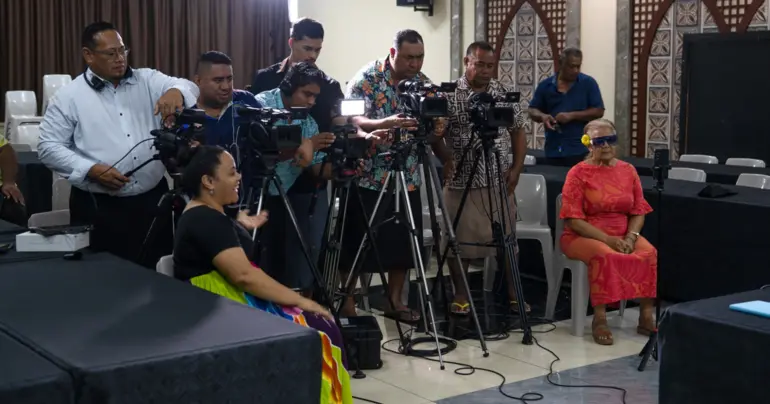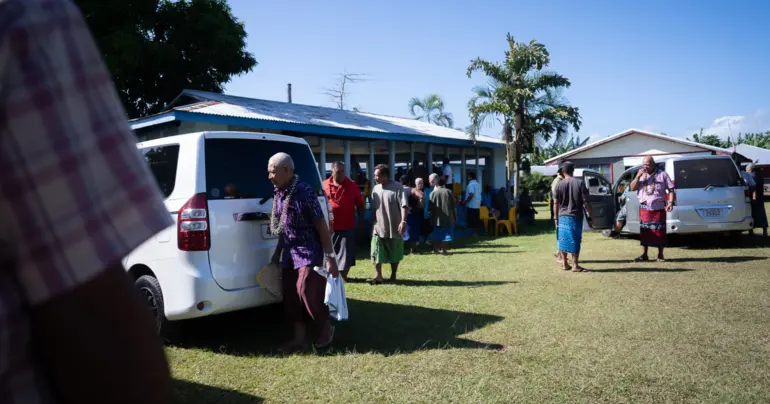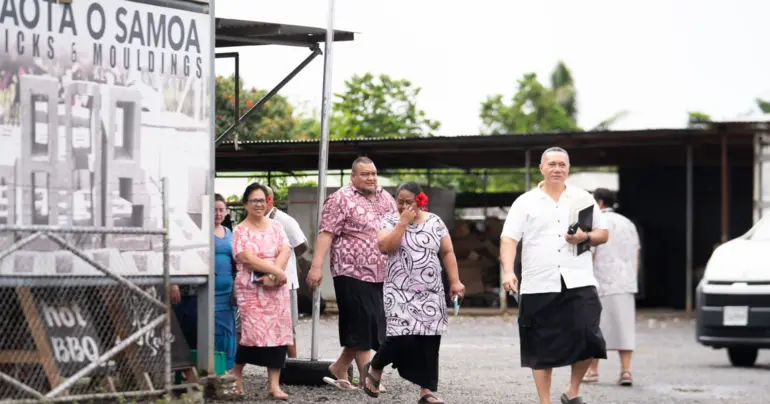Village rights must include opinions
 By The Editorial Board
•
24 February 2021, 11:30PM
By The Editorial Board
•
24 February 2021, 11:30PM
Beyond our families, villages are the most integral structures to our nation.
When it comes to the administration of day-to-day affairs most Samoans rank Government bureaucracies a distant second to village councils, if the latter are even thought of at all.
Their legitimacy and authority is grounded in ancient tradition that invests them with powers the central Government simply does not have.
Villages instruct their representatives about what to do and what ideas they should espouse in response to social and political issues.
And yet we saw on the front page of Tuesday’s edition a Government Minister implying the reverse is true; that it is the place of the central Government to dictate village representation (“Village representatives opposing Govt. asked to resign”).
Tuitama Dr. Talalelei Tuitama, the outgoing Minister of Women, Community and Social Development said he was concerned about certain mayors (sui o nu'u) and women representatives (sui tama'ita'i).
He called upon village representatives in disagreement with the Government to resign and to cease taking financial compensation.
Of course, the scheme for financially compensating village representatives in Samoa was a creation of this Government and from its outset it was wrought by the perception, if not potential, for use as a tool for political influence.
Both representatives from each village receive $250 a fortnight in Government payments. Across the entirety of Samoa's now 265 villages that amounts to more than $250,000 a year in payments, a sizeable and potentially influential sum.
It is in this context we must ask what the Minister meant when he asked those who were in disagreement with Government policy to resign.
He never specified what kind of disagreements he was talking about but we fear, in election season, his words skirted dangerously close to using public money to promote an officially approved way of political thinking.
It was the combination of their ambiguous yet simultaneously ominous tone that made the Minister’s remarks so notable.
"I have already explained to all village representatives - village mayors and women representatives - during our monthly meetings, that they are paid employees under the Ministry and the Government,” Tuitama said.
"So if there is a village representative that wished to work against the Government, that is their free will, however, they need to resign as a village representative.
"Because you cannot carry out your service to the people if you are working against the Government."
The Minister’s statements that his statements do not amount to a threat to a person's freedom of thought is more than arguable.
Withdrawing a steady stipend for those who do not align with a certain point of view is not particularly distinct from imposing a penalty for doing the same.
But more importantly what did the Minister mean when he said that representatives were “working against the Government”.
To hear such rhetoric from a Minister in this Government is particularly confusing.
After all, it spent last year styling itself as every inch the defender of village rights. The Prime Minister Tuilaepa Dr. Sailele Malielegaoi said it was acting to ensure there was no possibility they could be trumped for “foreign” notions of human rights.
Among the policies for change floated this election is a proposal to increasingly devolve Government to villages by granting them a certain amount of yearly funding for overseeing infrastructure and works projects.
There is merit in this idea, presuming it can be implemented with all the implicit safeguards that must be attached to the disbursement of public money.
Villages, after all, are closer to the needs of their people and can act more quickly than Government bureaucracy which often suffers from bottlenecks.
But autonomy for villages in what they say and whom they choose to say it is also of paramount importance.
We must ask what the Minister meant when he referred to village representatives who were opposed to the Government.
At its core, the Ministry he oversees is a mission to roll out policies to promote economic development and identify problems of infrastructure that need addressing.
There is also a social dimension to their policy work which includes promoting the social development of women’s economic empowerment and creating equality for women, gender, children, and people with a disability.
Campaigns such as ending alcohol abuse and violence against women also fall under the Ministry’s responsibilities.
None of the above could properly be described as matters of ideology or philosophy.
It is difficult to imagine a senior village representative opposing a policy dedicated to lowering endemic problems with alcohol.
But the Minister took it even further when he suggested that some village leaders were not merely opposed to but actively subverting Government plans.
"[The Ministry] cannot accept your efforts against the Government's agenda carried out by the Ministry or any other Government plans,” he said on Monday.
We must ask: is the Government really encountering problems with its village representatives who are opposed to policies that are, by their nature, about the advancement of villages?
Are there village representatives who are subverting the interests of their neighbours by opposing economic development programmes?
On social issues, of course, a range of views and approaches are to be found in the way villages approach issues such as the advancement or representation of women. Some women choose not to bestow certain titles upon women in accordance with customs formed thousands of years ago.
Changing a village’s representative is no way to solve differences of opinion with the Government on such issues.
A newly appointed representative would, presumably, continue to uphold and represent the customs of the village he or she represents. This would be an entirely self-defeating process.
So what did the Minister mean? Was he talking about representatives’ opposition to policies within his portfolio or the Government more broadly. The difference between the two is immense and critical.
Village affairs are complicated matters indeed but also inextricable from our national fabric.
We do not claim that village governance is perfect. Often on the pages of this newspaper scrutiny is applied to village decisions and the actions of village representatives.
But rather than making unspecific suggestions that certain villages are working against the Government agenda, we invite the Minister to explicitly provide examples of how this is taking place, by whom, and on what policy differences with the Ministry’s development-focused agenda.
If the Minister is instead suggesting that village representatives who have broader political or ideological differences with the Government should be stripped of their stipends then that is deeply concerning.
It would be an encroachment upon villages’ freedom of political affiliation, speech and thought and the first step on a very dangerous path indeed.
 By The Editorial Board
•
24 February 2021, 11:30PM
By The Editorial Board
•
24 February 2021, 11:30PM










